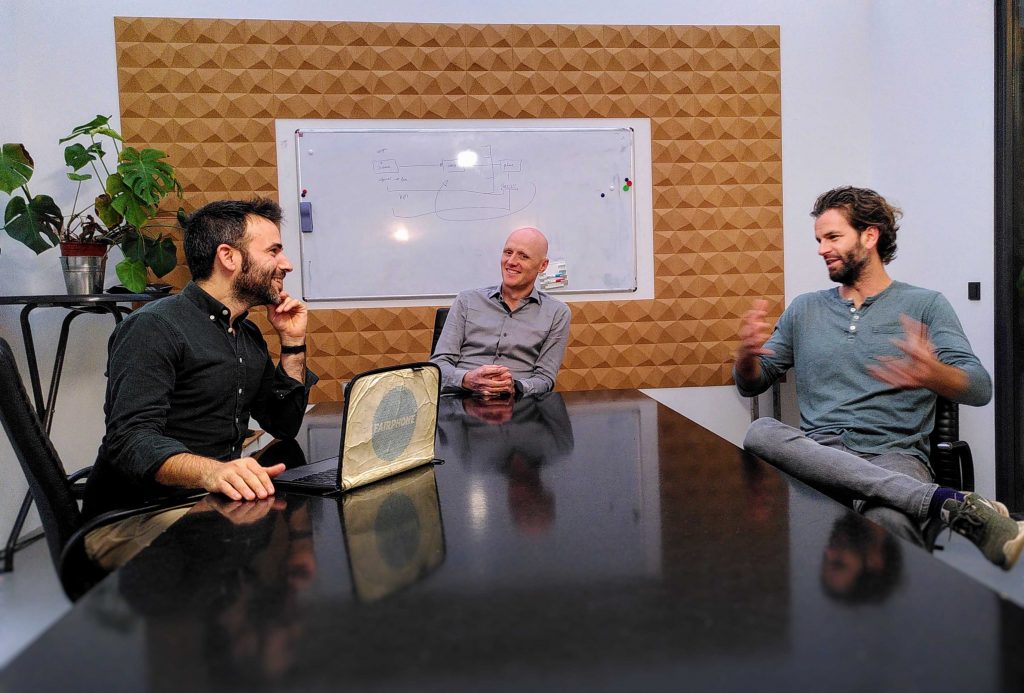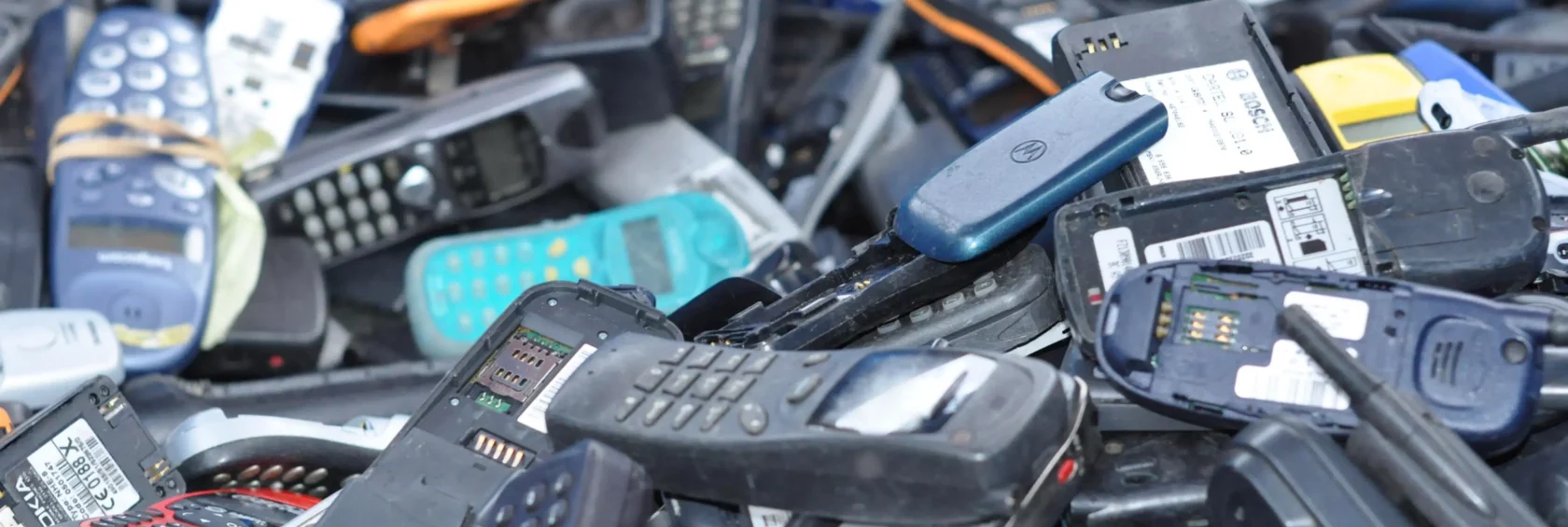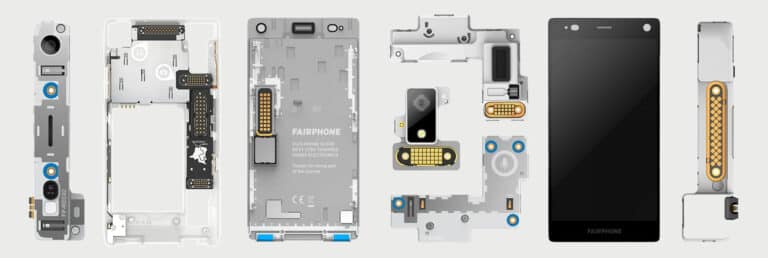Podcast: Making a business case for African battery recycling
Read more about the business case for African battery recycling in Closing the Loop’s whitepaper based on our learnings from the project.
It’s no secret – We’re out to change the electronics industry. Together with an amazing network of changemakers, we’re disrupting a short-term way of thinking that the world can no longer afford.
These are the folks that inspired this podcast, because all of these projects and initiatives are breaking new ground and the pioneers usually have great stories to tell. Fairtalks #6 is no different. We’re joined by Joost de Kluijver and Reinhardt Smit, the minds behind Closing The Loop.
 Miquel, Reinhardt and Joost close the loop in our little recording studio.
Miquel, Reinhardt and Joost close the loop in our little recording studio.In short: Together, we’ve delivered a result deemed impossible by many. We turned the most problematic waste stream in tech into commercial, societal and environmental value. The business case for African scrap battery recycling is now proven – and ready to be scaled.
Join our host Miquel, as his two guests take him on a journey towards real, impactful change.
About the project
More than 5,000kg of batteries were collected in Nigeria, before being shipped to Europe for safe recycling earlier in 2020. As part of the pilot scheme, the batteries were safely collected by paying local communities in Nigeria to prevent the batteries from going to landfills.
Since the African continent lacks adequate battery recycling facilities, the project offers major social and environmental benefits in Nigeria. Batteries are often processed under dangerous health and environmental conditions, or dumped and burned in the open air along with other electronics.
CTL’s innovative business model addresses these issues by making it possible to safely collect and ship these batteries from West Africa to Europe. For Fairphone, this shipment is the first step in our long-term plan to use recycled materials such as cobalt, from regions with limited recycling infrastructure, to produce a fairer mobile phone battery. The pilot shows the tech industry that business models to counter e-waste in Africa are possible, and despite the bureaucratic difficulties, collecting and recycling batteries from Africa is achievable and even commercially viable.



